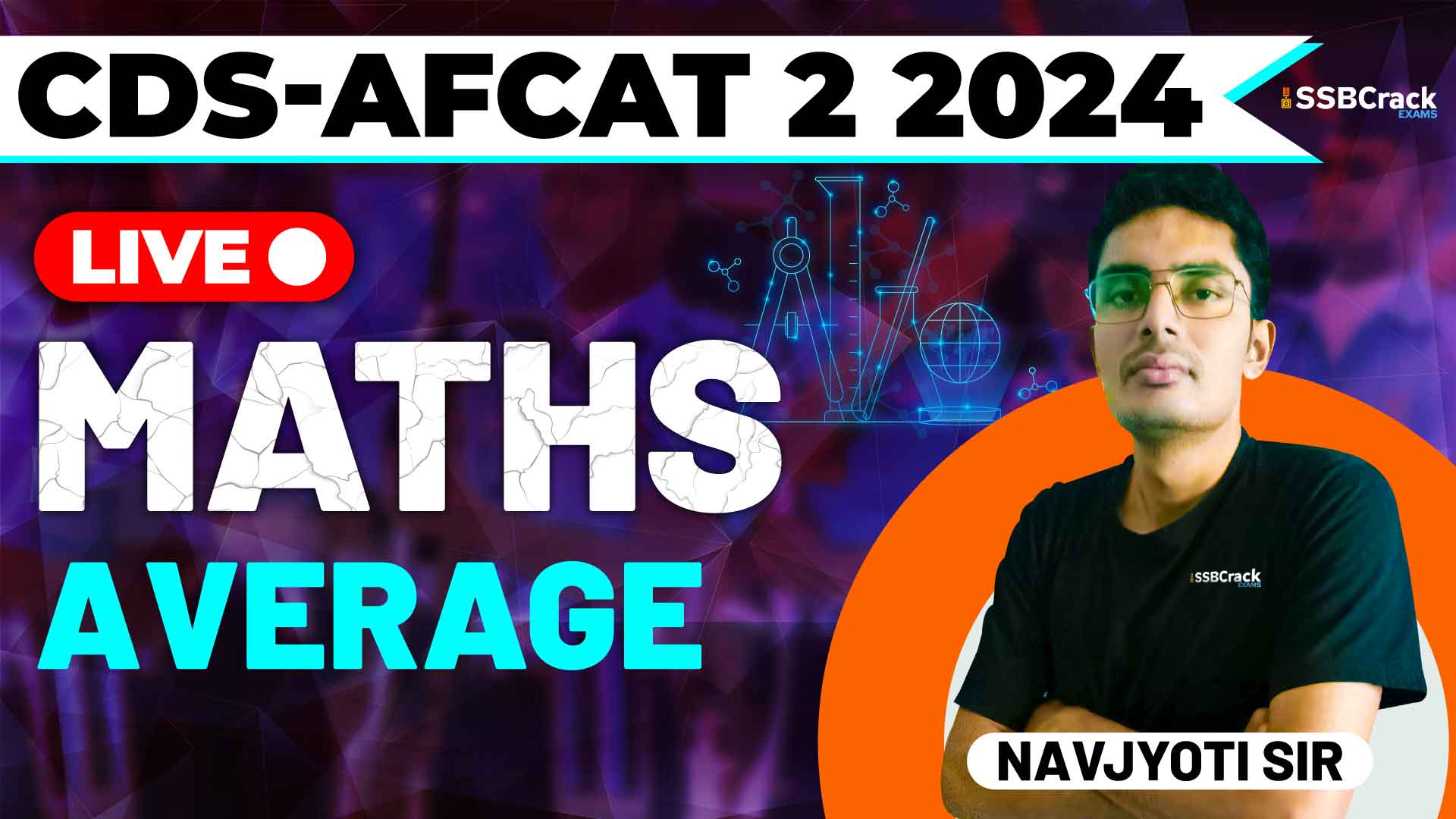When preparing for competitive exams such as the Combined Defence Services (CDS) and Air Force Common Admission Test (AFCAT), understanding mathematical concepts is crucial. One such fundamental topic is Averages. Recently, a dedicated class focused on this topic, emphasizing both the conceptual understanding and the practice of multiple-choice questions (MCQs). This article provides an overview of the class, highlighting key concepts, strategies for solving average-related problems, and the importance of regular practice.
Understanding Averages
Averages, often referred to as the mean, represent the central value of a set of numbers. It is a fundamental concept in mathematics and statistics, and a crucial topic for competitive exams like CDS and AFCAT. An average provides a quick snapshot of a data set and is used to find a single value that represents the entire set.
Key Concepts:
- Definition: The average of a set of numbers is the sum of all the numbers divided by the count of the numbers.
- Purpose: It gives a single value that summarizes the entire set, making it easier to compare different sets of data.
- Types of Averages: There are various types of averages, including arithmetic mean, weighted average, and geometric mean, but the arithmetic mean is the most commonly used in exams.
Importance of Averages in Competitive Exams
Averages are a staple in competitive exams because they test a candidate’s ability to understand and manipulate numerical data. Questions on averages can vary in complexity and can involve different scenarios, such as:
- Finding the average of a set of numbers.
- Calculating the average of a group of groups.
- Solving problems involving changes in averages.
Key Concepts Discussed in Class
The class dedicated to averages covered several important aspects of the topic, ensuring students understood both the basics and the nuances of average-related problems. Here’s a summary of the key concepts discussed:
1. Basic Calculation of Averages
Understanding how to calculate the average of a simple set of numbers is fundamental. This involves adding up all the numbers and dividing the sum by the total count of numbers. For example, to find the average of 2, 4, and 6, you would add them (2+4+6 = 12) and then divide by the number of elements (12/3 = 4).
2. Weighted Average
Weighted average is used when different elements in a set have different levels of importance or weights. The calculation involves multiplying each number by its weight, adding these products together, and then dividing by the sum of the weights.
3. Problems Involving Changes in Averages
These problems involve scenarios where the average changes due to the addition or removal of elements from the set. Understanding how to adjust the calculation when elements are added or removed is crucial for solving these problems efficiently.
Practice of MCQs
The class also involved practicing multiple-choice questions (MCQs) to reinforce the concepts discussed. Practicing MCQs is essential for several reasons:
- Application of Concepts: Solving MCQs helps in applying the theoretical concepts to practical problems.
- Speed and Accuracy: Regular practice improves speed and accuracy, which are critical for competitive exams.
- Variety of Questions: Exposure to different types of questions helps in understanding the various ways in which a concept can be tested.
Example Questions
Example 1: Basic Average Calculation
Question: Find the average of the numbers 5, 10, 15, 20, and 25.
Solution:
- Sum of numbers: 5 + 10 + 15 + 20 + 25 = 75
- Count of numbers: 5
- Average: 75 / 5 = 15
Answer: The average is 15.
Example 2: Weighted Average
Question: A student scores 70, 80, and 90 in three subjects with weights 1, 2, and 3 respectively. What is the weighted average score?
Solution:
- Total score = (701) + (802) + (90*3) = 70 + 160 + 270 = 500
- Total weight = 1 + 2 + 3 = 6
- Weighted average = 500 / 6 ≈ 83.33
Answer: The weighted average score is approximately 83.33.
Example 3: Change in Average
Question: The average age of a group of 5 students is 20 years. A new student joins the group, increasing the average age to 21 years. What is the age of the new student?
Solution:
- Total age of 5 students = 20 * 5 = 100
- Total age of 6 students = 21 * 6 = 126
- Age of new student = 126 – 100 = 26
Answer: The age of the new student is 26 years.
Strategies for Solving Average Problems
To excel in solving average problems, adopt the following strategies:
- Understand the Problem: Carefully read the question to determine what is being asked.
- Identify Key Values: Note down the given numbers, their counts, and any weights if applicable.
- Use the Right Method: Apply the appropriate method based on the type of average problem.
- Double-Check Calculations: Ensure accuracy by double-checking your calculations.
- Practice Regularly: Regular practice helps in mastering the techniques and improving speed.
Conclusion
Mastering the concept of averages is essential for success in the CDS and AFCAT exams. By understanding the fundamentals, practicing regularly, and applying strategic approaches to problem-solving, students can enhance their proficiency in this area.
The class dedicated to averages emphasized the importance of understanding basic concepts, accurately applying formulas, and regularly practicing different types of problems. By following these guidelines and continually engaging with the material, students can build a strong foundation in averages.
Through consistent practice, strategic problem-solving, and a clear understanding of core concepts, you will be well-prepared to excel in the averages section of the CDS and AFCAT exams. Stay focused, practice diligently, and approach each problem with a clear and analytical mind. Good luck!








